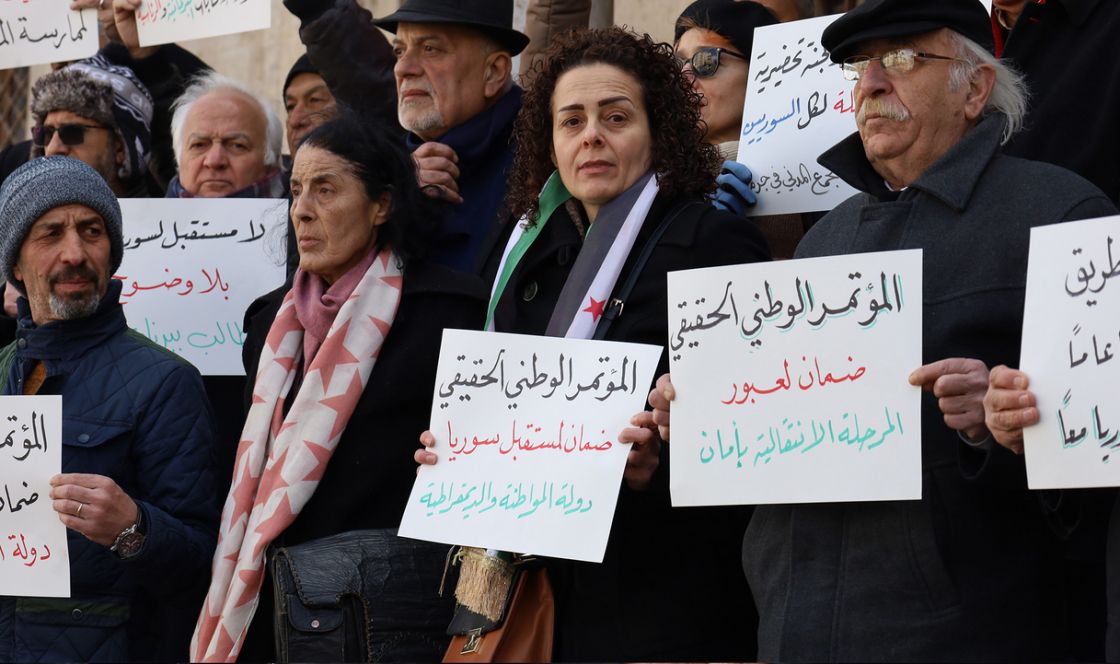- Editorials
- Posted
Kassioun Editorial 1239: How Do We Make Partition Impossible?
Against the backdrop of the escalating crises that have occurred and are ongoing in various parts of the country, two contradictory views are circulating within Syrian circles regarding the country’s unity and the possibility of partitioning it. The first view considers partition impossible under any circumstances, while the second believes partition is inevitable and that it is only a matter of time. Neither view reflects objective facts and realities, either internal or external.
Regarding external factors, it is absolutely true that there are many countries that fear partition and have no interest in it, as the same would happen to them if it happens in Syria. Conversely, there is at least “Israel”, with the support of a sizable faction within the US, both of which have a clear and declared interest in dividing Syria and pushing it to become a detonator for a chain reaction that encompasses the entire region, within the framework of the “New Middle East”, and within the framework of the struggle against rising international powers, most notably China and Russia.
The clear conclusion is that we should not be complacent and resigned to the idea that the external situation will not allow for partition. Preventing partition in Syria, in terms of foreign relations, requires a specific balance in building those relations, based primarily on the countries that have a vested interest in preserving a unified Syria. At the forefront of these countries, along with China and Russia, are the regional countries threatened by explosion and partition: Turkey, Saudi Arabia, Egypt, Iran, Iraq, and Lebanon.
As for internal factors, although the factors of unification remain much heavier and more significant than the factors of fragmentation and division, the latter are steadily increasing in intensity and are becoming increasingly dangerous. They must be stopped quickly through a radical change in the course of events. Among the most important of these factors are the following:
First: The continuously deteriorating living and service conditions of the overwhelming majority of Syrians, who struggle daily and are unable to secure even the bare minimum of a decent standard of living. This situation, and its escalation, is driving people to seek any and all solutions, even if they are illusory.
Second: Within the socioeconomic framework, moving towards liberalization, privatization, and the weakening of the role of the state’s social apparatus is an ideal approach to pushing towards partition. This approach was invented by the IMF and World Bank, under the label of “structural reform”, precisely to serve the process of fragmenting and weakening societies and states in the “Third World”, to tighten control over them and maximize plundering them.
Third: The absence of a single national market, as a result of the continued de facto partition and the failure to reach comprehensive political understandings, is a dangerous factor for partitioning, because one of the material foundations of the unity of any country in our contemporary world is the existence of a single national market.
Fourth: The level of political freedoms, which had increased significantly after the fall of the previous authority, has gradually and widely declined under the pressure of violence and infighting. The decline in political freedoms is a factor in the partitioning and weakening of countries.
Fifth: Relying on the logic of partial security solutions, far from comprehensive political solutions, is also a significant factor in weakening, partitioning, and dividing society, especially when it is accompanied by massive sectarian, religious, and nationalist incitement campaigns carried out by sides inside and outside the country.
Sixth: The absence of genuine political participation and reliance on monopolization and exclusivity is also a fundamental factor in partition and division, because it strips society of its effective role and transforms it into a “subject”, or rather, into a group of “subjects” subservient to the sides to the violent internal conflict.
Preventing the partition of Syria and defending its unity is achievable and has a high chance of success. However, it requires sincere and serious action against negative factors, both internal and external. This begins with holding a general national conference that reunifies Syrian society as a body of free Syrian citizens, equal in rights and obligations, regardless of any affiliation. This conference will lead to the formation of a comprehensive national unity government, a permanent constitution, and free and fair elections in which the Syrian people determine their own fate. These steps, taken together, are the essence of UNSC Resolution 2254, the implementation of which (with an amendment) has become a necessity to prevent the partition of the country.


